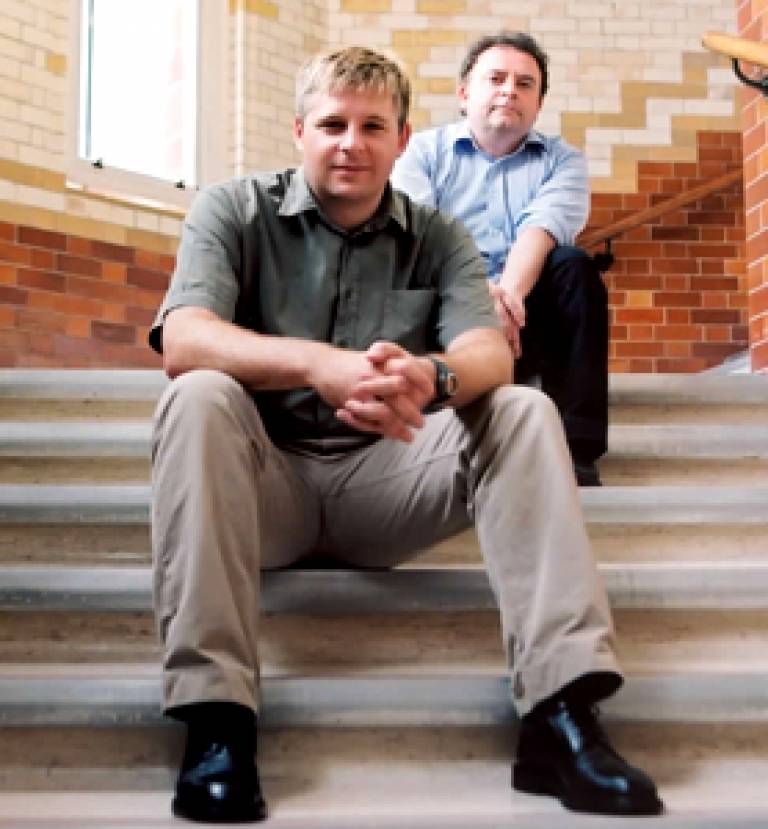Cancer test developed
6 September 2004
UCL scientists have developed a test that diagnoses oesophageal (gullet) cancer with greater accuracy than ever before.

Professor Gareth Williams and Dr Kai Stoeber of the Wolfson Institute for Biomedical Research believe that the test could dramatically cut oesophageal cancer deaths through effective early diagnosis. Published in the 'British Journal of Cancer', their research showed that the test was able to identify cases of the disease with 85 per cent accuracy.
The test measures levels of Mcm5, a protein that plays an important part in normal cell division. Normally, Mcm5 levels are highly regulated, but when cancerous cell divisions occur at a site in the body, Mcm5 levels rise in the area. By testing oesophageal fluid samples for abnormal levels of Mcm5, the scientists have found that they can identify early stage cancer even when no symptoms are present.
Currently, five-year survival rates from cancer of the oesophagus stand at only eight per cent, but this is largely due to the fact that oesophageal cancer symptoms are non-specific and so the cancer is rarely caught in its early stages. Where an early diagnosis does occur, surgery and chemotherapy can lead to survival rates of 80 per cent, explained Professor Williams: "Oesophageal cancer is the ninth most common cancer in the UK, but it is particularly difficult to identify early, so this test could greatly benefit patients. Spotting the cancer early on is the single most effective way to improve survival rates."
A major advantage of the test is that it is simple to take the necessary sample and to interpret the results. Current tests for oesophageal cancer rely on checking the oesophageal lining of the patient with an endoscope, which is fairly invasive. The results of the endoscopy then have to be analysed by pathologist or lab technician, who looks for cell changes through a microscope. By contrast, the new test only needs fluid samples from the oesophagus and the results are easy to automate, making it suitable for large-scale cancer screening.
Dr Stoeber explained that the test's clinical effectiveness will now be assessed: "Our initial research focused on a group of 40 patients, half of whom had cancer and half of whom did not. We will now carry out trials with a much bigger patient sample."
Previous research by the team into the Mcm5 protein has produced fruitful results for screening other types of cancer as well, explained Dr Stoeber: "Our development of a test to measure Mcm5 is an example of fruitful collaboration between basic science and medical research, at which the Wolfson excels. Because the test works at a cellular level, it is relevant for many different types of cancer - we've had excellent results for bladder and prostate cancer as well. Now it is a case of replicating these initial results in large-scale clinical studies and then incorporating the test into medical practice."
 Close
Close

